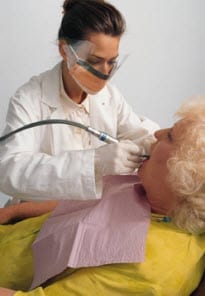 A bill containing a change to the current regulations in the state has now moved forward, despite opposition.
A bill containing a change to the current regulations in the state has now moved forward, despite opposition.
Wisconsin’s Republican led state Assembly has just passed a dental insurance bill, over opposition from considerable business lobby.
The bill was passed on a bipartisan vote this week to permit dentists to charge higher prices.
The dental insurance bill is designed to give dentists the ability to charge more money for certain specific services that they perform. In doing so, changes have now been forced into private contracts that are already in existence.
Though the dental insurance bill did have bipartisan support, it also faced considerable opposition.
Wisconsin Manufacturers and Commerce is an organization that has traditionally worked toward similar goals to the Republicans, issued a letter to the lawmakers only hours before the vote was to take place. In this letter, they strongly requested that they defeat the bill. They referred to it as an intrusion on business that was entirely unwarranted.
At the same time, this dental insurance measure held its bipartisan support, with the endorsement of the Wisconsin Dental Association. That organization currently represents approximately three thousand dentists across the state. When all was said and done, the bill passed the Assembly at a vote of 89 to 8, and it is now headed toward the Senate.
The changes from the dental insurance bill will cause existing contracts between insurers and dentists to have to change. This is because the insurers will no longer be permitted to force dentists to charge in-network patients a lower amount for some of the services that they provide. The current law in the state permits insurers to negotiate with dental professionals in order to achieve a lower rate for patients who are members of certain plans.
Supporters of the bill explained that under the current dental insurance law, dentists must shift the cost of their services from one group of patients – those with coverage plans that require the discounted services – to another group of patients – those without coverage. This means that individuals without coverage are paying even more out of their pockets than they otherwise would.
